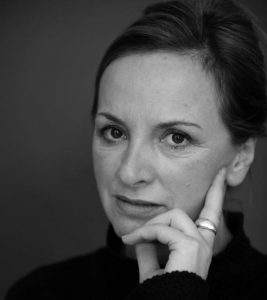
Have you seen the new Springer volume “Teaching Women Philosophers”? In this anthology, Ruth E. Hagengruber sheds light on the long overlooked history of women philosophers and their significant contributions to the development of thought over 2000 years and Émilie Du Châtelet on hypothesis:
Ideas and Concepts from Women Philosophers’ Writings Over 2000 Years
Abstract:
Why should the philosophy of the Pythagoreans be reduced to Pythagoras alone? Why do we learn about the ego only from Husserl and not from Conrad-Martius? What do we know about free will from Helene Druskowitz and why is Émilie Du Châtelet unknown to us? Many of the philosophers in this collection were celebrities in their own time. What can we gain from rediscovering the knowledge of women philosophers? Philosophy reflects the foundations on which we organise our world. There is no doubt that women create structures that shape our world. Over the centuries, women thinkers have formulated ideas and concepts to explain our world and to call for its reorganisation. This collection offers a selection of these ideas and concepts from over 2000 years. The new history of philosophy emerges in this way. It provides the basis for teaching and future research. Rooted in the past, it can use that experience to contribute to a new and better way forward.
Hagengruber, R.E. (2024). Teaching Women Philosophers—Ideas and Concepts from Women Philosophers’ Writings Over 2000 Years. In: Hagengruber, R.E. (eds) Teaching Women Philosophers. Women in the History of Philosophy and Sciences, vol 21. Springer, Cham. https://doi.org/10.1007/978-3-031-59298-0_1
Émilie Du Châtelet on Hypotheses
Abstract:
Today, hypotheses determine our scientific activity, and no one doubts that hypotheses are an essential tool of science. This was not always the case, on the contrary. Rather, the recognition of hypotheses as a crucial element for innovation in science marked a radical change when Émilie Du Châtelet proposed hypotheses as the relevant research tool, to replace by the search for causes. It was not only the status of hypotheses and their function that were contested. The defense of the hypothetical conjecture served to change the idea of science and consequently the idea of science’s architecture. The epistemic importance of principles and observation was relativized and became a control instrument for the power of imagination. Du Châtelet equates her epistemological turn with that of Copernicus when he reversed the perspective of how to see the universe. For all these reasons, the fourth chapter in the Institutionsphysiques is a core chapter of Du Châtelet’s methodology. No wonder, Du Châtelet’s chapter on hypotheses was influential and found its way into the writings of d’Alembert, Condillac, Euler and Kant, and its influence continued into the nineteenth and twentieth centuries, though her authorship was faded out.
Hagengruber, R.E. (2024). Émilie Du Châtelet on Hypotheses. In: Hagengruber, R.E. (eds) Teaching Women Philosophers. Women in the History of Philosophy and Sciences, vol 21. Springer, Cham. https://doi.org/10.1007/978-3-031-59298-0_5
You can find the papers here.
You cannot copy content of this page








